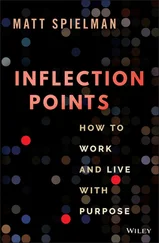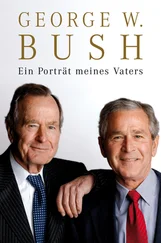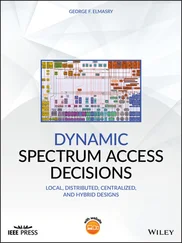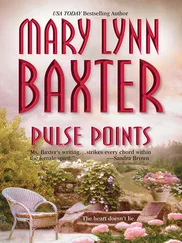The discovery reverberated throughout the scientific community. Fervent advocates of embryonic stem cell research hailed the breakthrough as “a spectacular advance” and “ethically uncomplicated.” Ian Wilmut, the Scottish scientist who cloned Dolly the sheep, announced that he would no longer pursue the cloning of human embryos, but would instead use this new technique.
I was thrilled by the news. This was the scientific breakthrough that I had hoped for when I made my announcement in 2001. Charles Krauthammer, one of the most insightful columnists in America and a respectful critic of my stem cell decision in 2001, wrote, “The verdict is clear: Rarely has a president—so vilified for a moral stance—been so thoroughly vindicated.”
In the years to come, our nation will face more dilemmas about bioethics, from cloning to genetic engineering. History will judge the character of our country in large part by the way we answer these challenges to human dignity. I have faith, as I did when I announced my stem cell decision in 2001, that science and ethics can coexist. With thoughtful policy, we can usher in the new cures that Nancy Reagan hoped for, without moving toward the world foreseen by Aldous Huxley.

After my address to the nation on stem cell research in August 2001, several commentators called it the most important decision of my presidency. That was true at the time, but not for long.
*The famous actor who played Superman, Reeve was confined to a wheelchair after a horse-riding accident. Sadly, he died in October 2004, one day before Edwards’s statement.

 n Tuesday, September 11, 2001, I awoke before dawn in my suite at the Colony Beach and Tennis Resort near Sarasota, Florida. I started the morning by reading the Bible and then went downstairs for a run. It was pitch-black as I began my jog around the golf course. The Secret Service agents had grown accustomed to my exercise routine; the locals must have found this run in the dark a little bizarre.
n Tuesday, September 11, 2001, I awoke before dawn in my suite at the Colony Beach and Tennis Resort near Sarasota, Florida. I started the morning by reading the Bible and then went downstairs for a run. It was pitch-black as I began my jog around the golf course. The Secret Service agents had grown accustomed to my exercise routine; the locals must have found this run in the dark a little bizarre.
Back at the hotel, I took a quick shower, ate a light breakfast, and skimmed the morning papers. The biggest story was that Michael Jordan was coming out of retirement to rejoin the NBA. Other headlines focused on the New York mayoral primary and a suspected case of mad cow disease in Japan.
Around 8:00 a.m., I received the Presidential Daily Briefing. The PDB, which combined highly classified intelligence with in-depth analysis of geopolitics, was one of the most fascinating parts of my day. The September 11 briefing, delivered by a bright CIA analyst named Mike Morell, covered Russia, China, and the Palestinian uprising in the West Bank and Gaza Strip.
Shortly after the PDB, we left for a visit to Emma E. Booker Elementary School to highlight education reform.
On the short walk from the motorcade to the classroom, Karl Rove mentioned that an airplane had crashed into the World Trade Center. That sounded strange. I envisioned a little propeller plane horribly lost. Then Condi called. I spoke to her from a secure phone in a classroom that had been converted into a communications center for the traveling White House staff. She told me the plane that had just struck the Trade Center tower was not a light aircraft. It was a commercial jetliner.
I was stunned. That plane must have had the worst pilot in the world. How could he possibly have flown into a skyscraper on a clear day? Maybe he’d had a heart attack. I told Condi to stay on top of the situation and asked my communications director, Dan Bartlett, to work on a statement promising the full support of federal emergency management services.
I greeted Booker’s principal, a friendly woman named Gwen Rigell. She introduced me to the teacher, Sandra Kay Daniels, and her roomful of second-graders. Mrs. Daniels led the class through a reading drill. After a few minutes, she told the students to pick up their lesson books. I sensed a presence behind me. Andy Card pressed his head next to mine and whispered in my ear.
“A second plane hit the second tower,” he said, pronouncing each word deliberately in his Massachusetts accent. “America is under attack.”
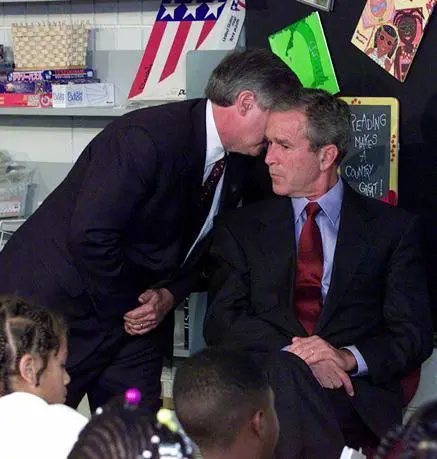
Andy Card delivering the terrible news. Associated Press/Doug Mills

My first reaction was outrage. Someone had dared attack America. They were going to pay. Then I looked at the faces of the children in front of me. I thought about the contrast between the brutality of the attackers and the innocence of those children. Millions like them would soon be counting on me to protect them. I was determined not to let them down.
I saw reporters at the back of the room, learning the news on their cell phones and pagers. Instinct kicked in. I knew my reaction would be recorded and beamed throughout the world. The nation would be in shock; the president could not be. If I stormed out hastily, it would scare the children and send ripples of panic throughout the country.
The reading lesson continued, but my mind raced far from the classroom. Who could have done this? How bad was the damage? What did the government need to do?
Press Secretary Ari Fleischer positioned himself between the reporters and me. He held up a sign that read “Don’t say anything yet.” I didn’t plan to. I had settled on a plan of action: When the lesson ended, I would leave the classroom calmly, gather the facts, and speak to the nation.
About seven minutes after Andy entered the classroom, I returned to the hold room, into which someone had wheeled a television. I watched in horror as the footage of the second plane hitting the south tower replayed in slow motion. The huge fireball and explosion of smoke were worse than I had imagined. The country would be shaken, and I needed to get on TV right away. I scribbled out my statement longhand. I wanted to assure the American people that the government was responding and that we would bring the perpetrators to justice. Then I wanted to get back to Washington as quickly as possible.
“Ladies and gentlemen, this is a difficult moment for America,” I began. “… Two airplanes have crashed into the World Trade Center in an apparent terrorist attack on our country.” There was an audible gasp from the audience of parents and community members, who were expecting a speech on education. “Terrorism against our nation will not stand,” I said. I closed by asking for a moment of silence for the victims.
Later, I learned that my words had echoed Dad’s promise that “this aggression will not stand” after Saddam Hussein invaded Kuwait. The repetition was not intentional. In my notes, I had written, “Terrorism against America will not succeed.” Dad’s words must have been buried in my subconscious, waiting to surface during another moment of crisis.

The Secret Service wanted to get me to Air Force One, and fast. As the motorcade charged down Florida Route 41, I called Condi from the secure phone in the limo. She told me there had been a third plane crash, this one into the Pentagon. I sat back in my seat and absorbed her words. My thoughts clarified: The first plane could have been an accident. The second was definitely an attack. The third was a declaration of war.
Читать дальше



 n Tuesday, September 11, 2001, I awoke before dawn in my suite at the Colony Beach and Tennis Resort near Sarasota, Florida. I started the morning by reading the Bible and then went downstairs for a run. It was pitch-black as I began my jog around the golf course. The Secret Service agents had grown accustomed to my exercise routine; the locals must have found this run in the dark a little bizarre.
n Tuesday, September 11, 2001, I awoke before dawn in my suite at the Colony Beach and Tennis Resort near Sarasota, Florida. I started the morning by reading the Bible and then went downstairs for a run. It was pitch-black as I began my jog around the golf course. The Secret Service agents had grown accustomed to my exercise routine; the locals must have found this run in the dark a little bizarre.





